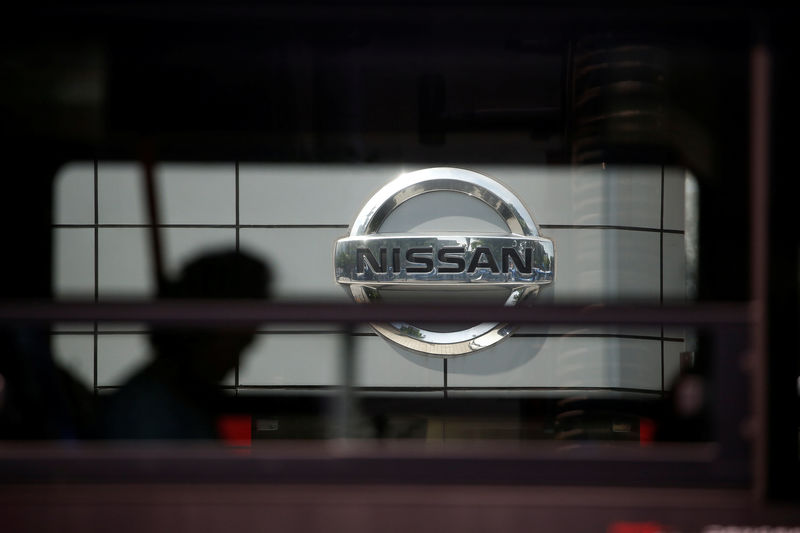Fitch lowers Nissan Motor's ratings to 'BB+' with negative outlook
- February 26, 2025
- Category: Stocks

Investing.com -- On Wednesday, February 26, 2025, Fitch Ratings announced that it has downgraded Nissan Motor Co., Ltd. (TYO: 7201 )'s Long-Term Foreign- and Local-Currency Issuer Default Ratings (IDRs) and senior unsecured rating to 'BB+', from 'BBB-'. The rating agency also reduced Nissan (OTC: NSANY )'s Short-Term Foreign- and Local-Currency IDRs to 'B', from 'F3'. The outlook for the company is negative.
The downgrade reflects Nissan's low profitability and a slower recovery trajectory than initially anticipated. Fitch predicts that the auto Earnings Before Interest and Taxes (EBIT) and free cash flow (FCF) will remain negative until the financial year ending March 2026 (FYE26). Despite these challenges, Nissan's strong liquidity and solid balance sheet provide a buffer against near-term cash outflow.
The negative outlook is due to uncertainty surrounding the execution of Nissan's restructuring plan. Although the plan is expected to cut costs reasonably, it may be impacted by US tariffs, weak new car sales in the US and southeast Asia, and increasing incentives in the US. Any delay in the restructuring could lead to further negative rating action.
Key factors driving the rating include a delayed recovery in profitability, with Nissan reducing its consolidated profitability guidance to 1.0% for FYE25, from 1.2% previously. However, the company's EBIT margin is expected to recover to around 2.5% in FYE27, thanks to pricing adjustments, inventory clearance, and steady demand, particularly with new model launches.
Nissan's restructuring plan, which includes reducing production capacity, headcount, and expenses, is expected to lead to a recovery in profitability. The company began reducing production in the first half of FYE25 to address rising inventory and lower sales volume forecast. It also revised its FYE25 global sales volume forecast down to 3.4 million units, from the initial 3.7 million units.
Potential US tariffs on imports could hinder Nissan's turnaround, particularly if these are applied to Mexican imports. Over 300,000 of the 629,000 units Nissan produced in Mexico in FYE24 were exported to the US.
Nissan also faces challenges in China, where sales dropped by 9.1% year-on-year to 497,000 units in the first nine months of FYE25. Despite this, the company plans to launch China-specific battery electric vehicles from FYE25 to FYE27.
Despite these challenges, Nissan's strong financial structure supports its ratings. The company's auto segment maintains a net cash position, providing a robust liquidity buffer. Moreover, the Renault-Nissan-Mitsubishi alliance remains intact, offering significant economies of scale.
Nissan's new alliance with Honda Motor Co (NYSE: HMC )., Ltd and Mitsubishi Motors (OTC: MMTOF ) Corporation is set to accelerate the development of electric vehicles (EVs) through shared technology and economies of scale. This is beneficial for Nissan, which has a smaller scale in the auto industry and lags in battery EV sales compared to its competitors.
Nissan enjoys geographical and product diversification, and its alliance with Renault (EPA: RENA ) and Mitsubishi makes it the world's fifth-largest automaker group. However, Nissan's standalone operating profile is modest compared to that of global auto original equipment manufacturers.
Fitch's key assumptions for Nissan include a 1.8% decline in auto revenue in FYE25, before rising by 1.7% a year in FYE26-FYE27 with the launch of new models. It also expects the auto EBIT margin to be at -1.4% and -0.1% in FYE25 and FYE26, respectively, before recovering to a low single-digit percentage in FYE27-FYE28.
Factors that could lead to further negative rating action include a failure to establish a clear improvement in profitability towards an auto EBITDA margin of above 3.5% or positive auto FCF by FYE27. The outlook will be revised to stable if the negative sensitivities are not met.
As of the end of 2024, Nissan's auto segment maintained a net cash position, with cash and cash equivalents totaling JPY2.0 trillion. Despite the large negative FCF forecast in FYE25, the segment is expected to maintain a net cash position and a cash balance of over JPY1.0 trillion. Nissan also has an unused committed line of JPY1.8 trillion, which supports both its auto and sales financing arms.
Nissan is a leading global automobile manufacturer. It was Japan's fourth-largest automaker by sales volume in 2023 and ninth-largest worldwide, based on data from Wards Intelligence.
This article was generated with the support of AI and reviewed by an editor. For more information see our T&C.

